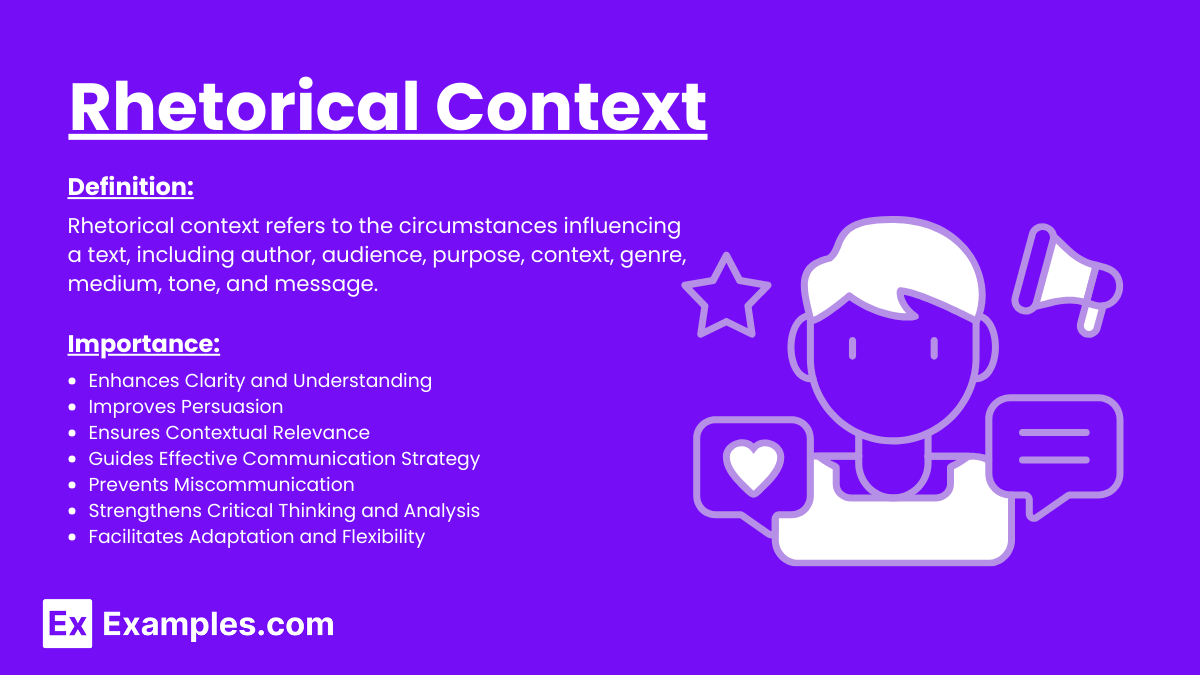50+ Rhetorical Context Examples
In the realm of effective communication, understanding the nuances of rhetorical context is paramount. Rhetorical context shapes the way we convey message, enabling us to tailor our words to specific audiences, situations, and purposes. This article delves into the concept of rhetorical context, providing insights into its definition, importance, and practical applications. Whether you’re a student, professional, or simply seeking to enhance your communication skills, this guide will empower you to navigate the art of language with precision and impact.
What is Rhetorical Context?
Rhetorical context refers to the web of circumstances, elements, and influences that surround a piece of communication, influencing how it’s understood and interpreted. This encompasses factors such as the audience, purpose, subject matter, medium, and cultural backdrop. It’s the dynamic interplay of these components that gives depth and meaning to language, allowing speakers and writers to craft messages that resonate. Consider a book, for instance. Its themes, tone, and literary devices are all elements of its rhetorical context, enhancing the reader’s experience and eliciting emotions.
Components of Rhetorical Context
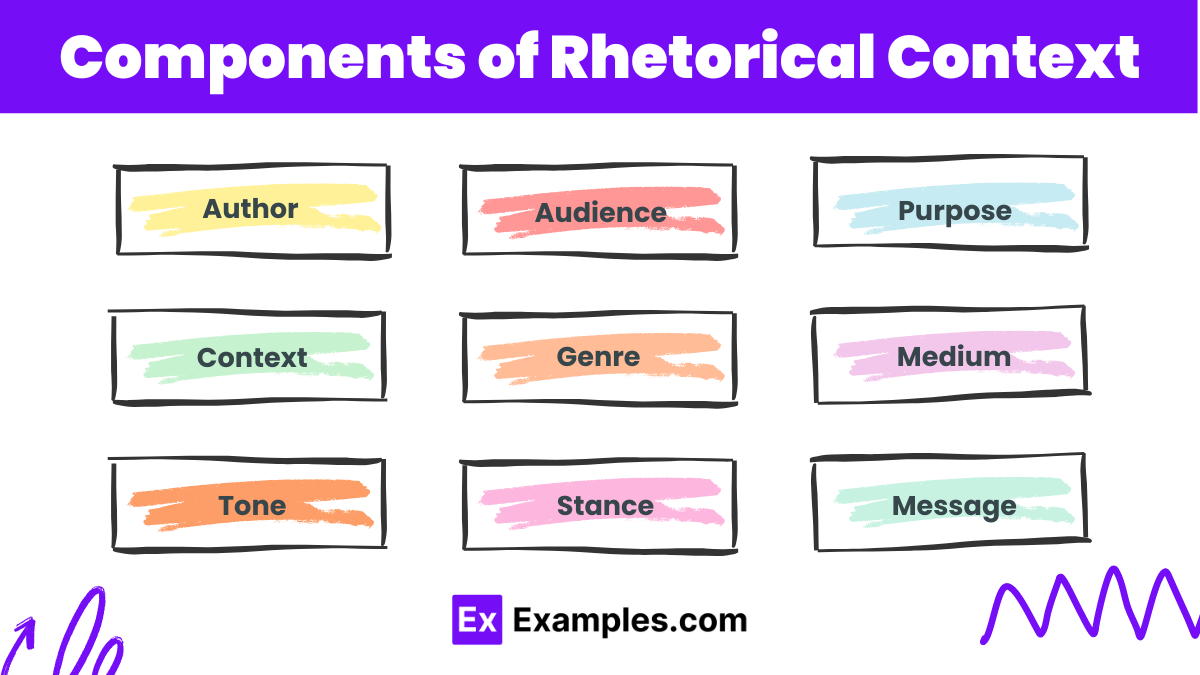
Understanding the components of rhetorical context is essential for analyzing and crafting effective communication. These components help us grasp the situation, purpose, and strategies behind a piece of writing or speech. Here are the main components:
1. Author (Writer/Speaker)
The author is the individual or group who creates the text. Understanding the author involves considering their:
- Background: Education, experiences, and expertise.
- Biases and Perspectives: Personal views and how they influence the content.
- Ethos: Credibility and character as perceived by the audience.
2. Audience
The audience refers to the intended recipients of the text. Knowing the audience includes:
- Demographics: Age, gender, education level, cultural background.
- Knowledge Level: Understanding of the subject matter.
- Expectations and Values: Beliefs and attitudes that shape how they receive the message.
3. Purpose
The purpose is the reason behind the text. It determines what the author aims to achieve, such as:
- Informing: Providing information or explanations.
- Persuading: Convincing the audience to adopt a particular viewpoint.
- Entertaining: Engaging the audience through storytelling or humor.
- Expressing: Sharing thoughts, feelings, or experiences.
4. Context
The context encompasses the circumstances surrounding the text’s creation and reception. Key elements include:
- Historical Context: Events and conditions at the time of writing.
- Cultural Context: Social norms, values, and traditions.
- Situational Context: Specific events or issues prompting the text.
5. Genre
The genre refers to the category or type of text. Understanding the genre involves recognizing its:
- Conventions: Typical features and structures.
- Expectations: What the audience anticipates from this type of text.
6. Medium
The medium is the method or channel of communication. It influences how the message is delivered and received, including:
- Written: Books, articles, essays.
- Oral: Speeches, lectures, conversations.
- Digital: Social media, blog, videos.
7. Tone
The tone is the attitude or emotional quality conveyed by the author. It affects how the message is perceived and can range from:
- Formal: Professional and serious.
- Informal: Casual and conversational.
- Humorous: Light-hearted and amusing.
- Sarcastic: Mocking or ironic.
8. Stance
The stance refers to the author’s position or viewpoint on the topic. It involves:
- Perspective: The angle from which the author approaches the subject.
- Bias: Any partiality or inclination.
9. Message
The message is the core content or main idea the author wants to convey. It includes:
- Thesis: The central argument or point.
- Supporting Details: Evidence, examples, and explanations that bolster the thesis.
Examples of Rhetorical Context:
Rhetorical Context Examples Sentences
Rhetorical context refers to the circumstances surrounding any communication, which includes the purpose, audience, and occasion. Here are some examples of sentences demonstrating different rhetorical contexts:
Academic Context
- Purpose: To inform and persuade about the benefits of renewable energy.
- “According to recent studies, renewable energy sources such as wind and solar power not only reduce greenhouse gas emissions but also create numerous job opportunities.”
- Audience: University students studying environmental science.
- “As future environmental scientists, it’s crucial to understand the long-term impacts of fossil fuels and the potential of renewable energy to mitigate climate change.”
- Occasion: A lecture or research paper.
- “This paper explores the effectiveness of various renewable energy policies implemented across different countries and their environmental and economic outcomes.”
Professional Context
- Purpose: To propose a new marketing strategy to increase sales.
- “By leveraging social media influencers and targeted ad campaigns, we can significantly boost our product’s visibility and attract a younger demographic.”
- Audience: Company executives and marketing team.
- “Our data indicates that a 20% increase in social media engagement could translate to a 15% rise in sales among millennials and Gen Z consumers.”
- Occasion: A business meeting or presentation.
- “During this presentation, I will outline the steps for implementing a comprehensive social media strategy that aligns with our brand’s goals and values.”
Personal Context
- Purpose: To express gratitude and appreciation.
- “Thank you so much for your support during my recent move. Your help made the process so much smoother and less stressful.”
- Audience: A friend or family member.
- “Your willingness to lend a hand, even with your busy schedule, means the world to me.”
- Occasion: A thank-you note or casual conversation.
- “I wanted to take a moment to express my heartfelt gratitude for everything you’ve done. Your kindness and generosity have made a big difference in my life.”
Social Media Context
- Purpose: To raise awareness about mental health.
- “It’s okay not to be okay. Reaching out for help is a sign of strength, not weakness.”
- Audience: Followers on a social media platform.
- “Remember, you’re not alone. There are resources and communities out there ready to support you.”
- Occasion: A social media post or campaign.
- “Join us in spreading awareness about mental health by sharing this post and using the hashtag #MentalHealthMatters.”
Political Context
- Purpose: To advocate for policy change.
- “Implementing universal healthcare will ensure that every citizen has access to the medical care they need, regardless of their financial situation.”
- Audience: Voters and policymakers.
- “As voters, you have the power to influence the future of our healthcare system by supporting candidates who prioritize health equity.”
- Occasion: A campaign speech or policy paper.
- “In this policy paper, we will examine the benefits of universal healthcare systems in various countries and propose a feasible implementation plan for our nation.”
Educational Context
- Purpose: To explain a complex concept in a simple way.
- “Photosynthesis is the process by which plants use sunlight to convert carbon dioxide and water into glucose and oxygen.”
- Audience: Middle school students learning about biology.
- “Think of it as plants making their own food using the sun’s energy – a bit like cooking, but with sunlight instead of heat.”
- Occasion: A classroom lecture or textbook.
- “In this chapter, we will explore the stages of photosynthesis and its importance in the life cycle of plants and the environment.”
Rhetorical Context Examples in Literature
Rhetorical context in literature refers to the circumstances that influence the creation and interpretation of literary works, including the author’s purpose, the audience, and the occasion or setting of the text. Here are some examples of rhetorical context in various literary works:
“To Kill a Mockingbird” by Harper Lee
- Purpose: To highlight the racial injustices and moral complexities of the American South in the 1930s.
- “You never really understand a person until you consider things from his point of view… Until you climb inside of his skin and walk around in it.”
- Audience: General public, readers interested in social justice and American history.
- The novel appeals to readers who are concerned with issues of race, morality, and the law.
- Occasion: Published in 1960, during the Civil Rights Movement in the United States.
- The book’s release during this period adds urgency and relevance to its themes of racial inequality and moral courage.
“1984” by George Orwell
- Purpose: To warn about the dangers of totalitarianism and the loss of individual freedoms.
- “Big Brother is Watching You.”
- Audience: Readers concerned about political systems and the preservation of personal freedoms.
- The novel is aimed at those who are wary of government overreach and propaganda.
- Occasion: Published in 1949, after World War II and during the early stages of the Cold War.
- The context of post-war recovery and the rise of authoritarian regimes gives the novel a powerful and timely message.
“The Great Gatsby” by F. Scott Fitzgerald
- Purpose: To critique the American Dream and explore themes of wealth, class, and disillusionment.
- “So we beat on, boats against the current, borne back ceaselessly into the past.”
- Audience: Readers interested in the Jazz Age, the American Dream, and social critique.
- The novel speaks to those fascinated by the glamour and moral decay of the Roaring Twenties.
- Occasion: Published in 1925, during the height of the Jazz Age.
- The book reflects the opulence and moral ambiguity of the era, capturing the spirit and downfall of that period.
“Pride and Prejudice” by Jane Austen
- Purpose: To explore themes of love, marriage, and social class in early 19th-century England.
- “It is a truth universally acknowledged, that a single man in possession of a good fortune, must be in want of a wife.”
- Audience: Readers interested in romance, social commentary, and the manners of the British gentry.
- The novel appeals to those who enjoy witty social critiques and love stories.
- Occasion: Published in 1813, during the Regency era in England.
- The book’s setting and themes reflect the social norms and expectations of the time, providing a critique of societal values.
“The Catcher in the Rye” by J.D. Salinger
- Purpose: To depict the struggles of adolescence and the journey towards self-discovery.
- “I keep picturing all these little kids playing some game in this big field of rye and all. Thousands of little kids, and nobody’s around—nobody big, I mean—except me.”
- Audience: Young adults and those interested in themes of identity and rebellion.
- The novel resonates with readers who feel alienated or are searching for their place in the world.
- Occasion: Published in 1951, post-World War II America.
- The book reflects the societal changes and youthful disillusionment of the post-war era.
“Frankenstein” by Mary Shelley
- Purpose: To explore themes of ambition, creation, and the ethical limits of science.
- “You are my creator, but I am your master; obey!”
- Audience: Readers interested in gothic fiction, science fiction, and ethical dilemmas.
- The novel appeals to those fascinated by the consequences of unchecked scientific exploration.
- Occasion: Published in 1818, during the Romantic period.
- The context of rapid scientific advancements and Romantic ideals of nature and emotion shapes the novel’s themes and reception.
Rhetorical Context Examples in Real life
Rhetorical context in real life involves understanding the purpose, audience, and occasion surrounding a communication. Here are examples of rhetorical context in various real-life situations:
Political Speech
- Purpose: To garner support for a policy or candidate.
- “We must invest in renewable energy to secure a sustainable future for our children.”
- Audience: Voters and constituents.
- The speech is aimed at people who are concerned about environmental issues and the future.
- Occasion: A campaign rally or political debate.
- The setting of a rally energizes supporters and builds momentum for the campaign.
Business Presentation
- Purpose: To persuade stakeholders to invest in a new project.
- “This new software will increase productivity by 20% and reduce operational costs.”
- Audience: Company executives and potential investors.
- The presentation is designed to convince decision-makers and financial backers of the project’s value.
- Occasion: A board meeting or investor pitch.
- The formal setting underscores the importance of the proposal and the need for careful consideration.
Educational Lecture
- Purpose: To educate students about a specific topic.
- “Understanding the fundamentals of quantum mechanics is crucial for advancing in modern physics.”
- Audience: University students studying physics.
- The lecture is tailored to individuals with a foundational knowledge of the subject.
- Occasion: A university lecture or seminar.
- The academic setting provides an environment conducive to learning and discussion.
Social Media Campaign
- Purpose: To raise awareness about mental health.
- “It’s okay not to be okay. Reach out for help when you need it. #MentalHealthMatters”
- Audience: General public, particularly young adults and social media users.
- The message is aimed at reducing stigma and encouraging people to seek support.
- Occasion: Mental Health Awareness Month.
- The timing aligns with a broader movement to promote mental health awareness and resources.
Wedding Toast
- Purpose: To celebrate and honor the newlyweds.
- “May your life together be filled with love, joy, and endless adventures.”
- Audience: Wedding guests, including family and friends of the couple.
- The toast is meant to share heartfelt sentiments and well-wishes with the couple and their loved ones.
- Occasion: A wedding reception.
- The celebratory atmosphere enhances the emotional impact of the toast.
Fundraising Event
- Purpose: To encourage donations for a charitable cause.
- “Your contribution will help us provide clean water to communities in need.”
- Audience: Potential donors and philanthropists.
- The appeal is directed at individuals who are capable and willing to support the cause financially.
- Occasion: A charity gala or fundraising dinner.
- The formal event underscores the importance of the cause and the need for generous support.
Public Health Announcement
- Purpose: To inform the public about health guidelines.
- “Wearing a mask and maintaining social distance can significantly reduce the spread of COVID-19.”
- Audience: General public, especially those at higher risk.
- The announcement aims to reach a wide audience to ensure public safety.
- Occasion: During a health crisis or pandemic.
- The urgent context demands clear and effective communication to protect public health.
Job Interview
- Purpose: To demonstrate qualifications and secure a job position.
- “My experience in project management and my ability to lead teams make me a strong candidate for this role.”
- Audience: Potential employer or hiring manager.
- The responses are tailored to address the specific needs and expectations of the employer.
- Occasion: A formal job interview.
- The professional setting requires a polished and articulate presentation of skills and experience.
Rhetorical Context Examples for Students
Understanding rhetorical context can help students tailor their communication for different purposes, audiences, and occasions. Here are some examples of rhetorical context in scenarios relevant to students:
Class Presentation
- Purpose: To explain and analyze a historical event.
- “The American Civil War significantly shaped the political landscape of the United States.”
- Audience: Classmates and teacher.
- The presentation should be informative and engaging, assuming the audience has some background knowledge but not expert-level understanding.
- Occasion: History class project.
- The academic setting requires a formal tone and the use of credible sources.
Persuasive Essay
- Purpose: To persuade readers to adopt a plant-based diet.
- “Adopting a plant-based diet can improve your health, reduce environmental impact, and alleviate animal suffering.”
- Audience: Fellow students and teachers.
- The essay should present logical arguments, backed by evidence, that are accessible and convincing to a general audience.
- Occasion: English class assignment.
- The essay needs to follow academic writing conventions and present a clear, well-supported argument.
School Assembly Speech
- Purpose: To motivate students to participate in a charity drive.
- “Together, we can make a difference in our community by donating to the local food bank.”
- Audience: Entire student body and faculty.
- The speech should be inspiring and inclusive, addressing the diverse interests and motivations of a broad audience.
- Occasion: Annual school assembly.
- The formal setting requires a polished and enthusiastic delivery.
Science Fair Project
- Purpose: To present findings from an experiment on plant growth.
- “Our experiment shows that plants grow faster with organic fertilizer compared to synthetic fertilizer.”
- Audience: Judges, teachers, and fellow students.
- The presentation should be clear and concise, explaining scientific concepts in an understandable way.
- Occasion: School science fair.
- The setting demands a balance between technical detail and accessibility, ensuring that all audience members can grasp the key points.
Social Media Post
- Purpose: To raise awareness about recycling.
- “Did you know that recycling just one aluminum can saves enough energy to power a TV for three hours? #GoGreen #Recycle”
- Audience: Friends, classmates, and a general social media audience.
- The message should be engaging and visually appealing, using hashtags to reach a wider audience.
- Occasion: Earth Day campaign.
- The timing and platform require a catchy and shareable format to maximize impact.
Group Project Report
- Purpose: To summarize the research and findings of a group project on renewable energy.
- “Our research indicates that solar power is the most viable renewable energy source for urban areas due to its scalability and cost-effectiveness.”
- Audience: Teacher and classmates.
- The report should be detailed and well-organized, showcasing the collaborative effort and findings of the group.
- Occasion: End-of-term project submission.
- The academic setting requires a formal tone, proper citations, and a clear presentation of data.
Personal Statement for College Application
- Purpose: To convey personal achievements, goals, and motivations.
- “Growing up in a small town taught me the value of community and inspired my passion for public service.”
- Audience: College admissions committee.
- The statement should be personal, reflective, and articulate, highlighting the student’s unique experiences and aspirations.
- Occasion: College application process.
- The formal setting requires a polished and thoughtful presentation of the student’s qualifications and character.
Thank-You Note
- Purpose: To express gratitude for a teacher’s support.
- “Thank you for your guidance and encouragement throughout the year. Your support has made a significant impact on my academic journey.”
- Audience: Teacher.
- The note should be sincere and appreciative, acknowledging the specific ways the teacher has helped.
- Occasion: End of the school year.
- The personal setting allows for a warm and heartfelt tone.
Debate Club Argument
- Purpose: To argue for a school policy change.
- “Implementing later start times for high school students can improve academic performance and overall well-being.”
- Audience: Debate club members and judges.
- The argument should be logical, well-researched, and persuasive, addressing potential counterarguments.
- Occasion: School debate competition.
- The formal setting requires a structured and compelling presentation of ideas.
Rhetorical Context Examples in Writing
Understanding rhetorical context in writing involves recognizing the purpose, audience, and occasion for which a piece is written. Here are some examples of rhetorical context in various types of writing:
Persuasive Essay
- Purpose: To persuade readers to adopt renewable energy solutions.
- “Investing in renewable energy sources like wind and solar power is crucial for reducing our carbon footprint and ensuring a sustainable future.”
- Audience: General public, policy makers, or environmental advocates.
- The essay should present clear arguments, supported by evidence, and appeal to the values and concerns of the audience.
- Occasion: Environmental awareness campaign or academic assignment.
- The essay must be well-researched, structured, and engaging to effectively communicate its message.
Business Proposal
- Purpose: To propose a new marketing strategy to increase sales.
- “Implementing a comprehensive digital marketing campaign will enhance our brand visibility and drive customer engagement.”
- Audience: Company executives and stakeholders.
- The proposal should be concise, data-driven, and demonstrate the potential return on investment.
- Occasion: Quarterly business meeting or strategy session.
- The formal setting requires a professional tone and thorough analysis.
Personal Narrative
- Purpose: To share a significant life experience and its impact.
- “Traveling to a remote village in Peru taught me the value of community and the importance of cultural exchange.”
- Audience: Friends, family, or a wider audience interested in personal stories.
- The narrative should be engaging, descriptive, and reflective, conveying the personal growth experienced.
- Occasion: Personal blog, memoir, or a writing assignment.
- The informal setting allows for a more conversational and expressive style.
Research Paper
- Purpose: To present findings from a scientific study on climate change.
- “Our analysis of global temperature data over the past century indicates a significant increase in average temperatures, correlating with industrial activity.”
- Audience: Academic peers, researchers, and students.
- The paper should be detailed, well-cited, and adhere to academic standards and formatting.
- Occasion: Publication in a scientific journal or submission for a university course.
- The formal academic setting demands precision, objectivity, and rigor.
Editorial
- Purpose: To comment on a current political issue and advocate for change.
- “Expanding healthcare access is essential for creating a more equitable society. We must push for policy reforms that ensure all citizens receive the medical care they need.”
- Audience: Newspaper readers, community members, or online followers.
- The editorial should be persuasive, clear, and grounded in logical arguments and evidence.
- Occasion: Publication in a newspaper, magazine, or online platform.
- The setting requires a balance of professionalism and accessibility to reach a broad audience.
Cover Letter
- Purpose: To apply for a job and highlight relevant qualifications.
- “With over five years of experience in digital marketing and a proven track record of driving successful campaigns, I am excited about the opportunity to contribute to your team.”
- Audience: Potential employers and hiring managers.
- The letter should be concise, focused on achievements, and tailored to the specific job and company.
- Occasion: Job application process.
- The professional context requires a formal tone and careful attention to detail.
Speech
- Purpose: To inspire graduates at a commencement ceremony.
- “As you step into the next chapter of your lives, remember that perseverance and passion are key to achieving your dreams.”
- Audience: Graduating students, their families, and faculty.
- The speech should be motivational, heartfelt, and resonate with the experiences of the graduates.
- Occasion: Graduation ceremony.
- The celebratory setting allows for a mix of formality and inspiration.
Informative Article
- Purpose: To educate readers about the benefits of mindfulness.
- “Practicing mindfulness can reduce stress, improve focus, and enhance overall well-being.”
- Audience: General public, particularly those interested in health and wellness.
- The article should be informative, accessible, and provide practical tips and insights.
- Occasion: Publication in a health magazine or online wellness blog.
- The setting requires a clear and engaging writing style to reach a broad audience.
Fiction
- Purpose: To entertain and convey a moral lesson.
- “In the small town of Eldoria, magic was more than a tool—it was a way of life. Yet, young Aria learned that true power came from within.”
- Audience: General readers, fantasy enthusiasts.
- The story should be imaginative, well-paced, and emotionally engaging.
- Occasion: Publication in a literary magazine, book, or online platform.
- The creative context allows for artistic expression and narrative depth.
Rhetorical Context Examples in Movies
Rhetorical context in movies involves understanding the purpose, audience, and occasion that influence the creation and interpretation of the film. Here are some examples of rhetorical context in various movies:
“The Pursuit of Happyness” (2006)
- Purpose: To inspire and motivate viewers by showcasing the importance of perseverance and determination in overcoming adversity.
- “Don’t ever let somebody tell you you can’t do something. Not even me. All right? You got a dream, you gotta protect it.”
- Audience: General public, particularly those interested in inspirational true stories and dramas.
- The film appeals to individuals facing challenges, offering hope and encouragement through the protagonist’s journey.
- Occasion: Released during the holiday season, a time when audiences are often seeking uplifting and heartwarming stories.
- The timing of the release enhances its impact as an inspirational and motivational story.
“Schindler’s List” (1993)
- Purpose: To educate viewers about the horrors of the Holocaust and to honor the memory of the victims.
- “Whoever saves one life, saves the world entire.”
- Audience: General public, educators, historians, and individuals interested in World War II and human rights.
- The film is intended to inform and evoke a deep emotional response, fostering awareness and reflection on the atrocities of the Holocaust.
- Occasion: Released during a period of increasing interest in historical narratives and human rights issues.
- The historical and educational context gives the film its enduring significance and impact.
“12 Angry Men” (1957)
- Purpose: To highlight the importance of justice, critical thinking, and the jury system in ensuring a fair trial.
- “It’s not easy for me to raise my hand and send a boy off to die without talking about it first.”
- Audience: General public, legal professionals, and students.
- The film encourages viewers to consider the complexities of the judicial process and the importance of reasonable doubt.
- Occasion: Released during a time when social justice and civil rights issues were gaining prominence in the United States.
- The film’s themes resonate with ongoing discussions about fairness and equality in the justice system.
“Inside Out” (2015)
- Purpose: To explore the complexities of emotions and mental health in a way that is accessible to both children and adults.
- “All right! We did not die today, I call that an unqualified success.”
- Audience: Families, children, and individuals interested in psychology and emotional well-being.
- The film uses a creative narrative to teach viewers about the importance and validity of all emotions.
- Occasion: Released as a summer family movie, appealing to a wide audience looking for both entertainment and meaningful content.
- The release timing enhances its appeal as a family-friendly film with educational value.
“The Social Network” (2010)
- Purpose: To dramatize the creation and rise of Facebook, highlighting themes of ambition, friendship, and betrayal.
- “You don’t get to 500 million friends without making a few enemies.”
- Audience: General public, particularly those interested in technology, entrepreneurship, and contemporary history.
- The film appeals to viewers fascinated by the rapid evolution of social media and its impact on society.
- Occasion: Released during the height of social media’s growth and influence.
- The context of social media’s prominence in daily life makes the film highly relevant and thought-provoking.
“Erin Brockovich” (2000)
- Purpose: To inspire and inform viewers about the impact of environmental activism and the power of one person to make a difference.
- “They’re called boobs, Ed.”
- Audience: General public, environmental activists, and those interested in legal dramas.
- The film appeals to viewers interested in real-life stories of courage and social justice.
- Occasion: Released during a time of increasing awareness and concern about environmental issues.
- The film’s context underscores the importance of environmental protection and corporate accountability.
“Toy Story” (1995)
- Purpose: To entertain and explore themes of friendship, loyalty, and change.
- “To infinity and beyond!”
- Audience: Families, children, and animation enthusiasts.
- The film appeals to a broad audience with its engaging story, humor, and innovative animation.
- Occasion: Released as the first feature-length film created entirely with computer-generated imagery.
- The groundbreaking technology and universal themes contribute to its lasting popularity.
“Good Will Hunting” (1997)
- Purpose: To explore themes of self-discovery, personal growth, and the impact of relationships.
- “It’s not your fault.”
- Audience: General public, particularly those interested in drama and psychological narratives.
- The film appeals to viewers who appreciate deep character development and emotional storytelling.
- Occasion: Released during the awards season, gaining critical acclaim and recognition.
- The timing of its release enhances its impact and visibility, contributing to its success.
Rhetorical Context Examples in Everyday life
Rhetorical context in everyday life involves understanding the purpose, audience, and occasion behind various forms of communication. Here are some examples of rhetorical context in everyday scenarios:
Email to a Teacher
- Purpose: To request an extension on a homework assignment.
- “Dear Mrs. Smith, I’m writing to request an extension on the math assignment due to unforeseen personal circumstances.”
- Audience: A teacher or professor.
- The tone should be respectful and explain the situation clearly, providing reasons for the request.
- Occasion: Personal or academic difficulty.
- The context requires a polite and formal tone to demonstrate responsibility and respect for the teacher’s rules.
Text Message to a Friend
- Purpose: To invite them to a casual gathering.
- “Hey Alex, we’re having a BBQ at my place this Saturday. Would love for you to come!”
- Audience: A close friend.
- The tone can be informal and friendly, reflecting the casual nature of the event and the relationship.
- Occasion: Social event planning.
- The message should be brief, inviting, and provide essential details about the event.
Workplace Meeting
- Purpose: To discuss quarterly performance and set goals for the next quarter.
- “This quarter, our team exceeded sales targets by 15%. Let’s discuss strategies to maintain this momentum.”
- Audience: Colleagues and supervisors.
- The tone should be professional and collaborative, focusing on achievements and future plans.
- Occasion: Regular business review meeting.
- The context demands clear, concise, and constructive communication, emphasizing team performance and objectives.
Family Dinner Conversation
- Purpose: To discuss upcoming holiday plans.
- “I was thinking it would be nice to spend Thanksgiving at Grandma’s this year. What does everyone think?”
- Audience: Family members.
- The tone should be inclusive and considerate, inviting input and discussion from everyone.
- Occasion: Family gathering or meal.
- The conversation should be warm and engaging, facilitating family bonding and planning.
Customer Service Interaction
- Purpose: To resolve an issue with a product or service.
- “I recently purchased a laptop from your store, but it’s not functioning properly. Can you help me with a replacement or repair?”
- Audience: Customer service representative.
- The tone should be polite and clear, explaining the issue and requesting a solution.
- Occasion: After-sales service or complaint.
- The context requires a respectful approach to ensure effective communication and resolution.
Social Media Post
- Purpose: To share a personal achievement or milestone.
- “Excited to announce that I’ve been promoted to Senior Manager! Thank you to everyone who supported me along the way.”
- Audience: Friends, family, and social media followers.
- The tone can be celebratory and grateful, acknowledging the support of others.
- Occasion: Personal announcement or update.
- The post should be positive and engaging, inviting congratulations and interaction from the audience.
Public Announcement
- Purpose: To inform the community about a local event or change.
- “Please note that the community park will be closed for maintenance from June 1st to June 10th. We apologize for any inconvenience.”
- Audience: Local community members.
- The tone should be informative and considerate, providing necessary details and apologies for any disruption.
- Occasion: Public service announcement.
- The announcement should be clear and direct, ensuring that the information reaches and is understood by the audience.
Doctor’s Appointment
- Purpose: To discuss health concerns and treatment options.
- “I’ve been experiencing persistent headaches for the past month. Can we explore possible causes and treatments?”
- Audience: Medical professional.
- The tone should be honest and detailed, providing relevant information about symptoms and concerns.
- Occasion: Medical consultation.
- The context requires clear and open communication to ensure effective diagnosis and treatment.
Parent-Teacher Conference
- Purpose: To discuss a child’s academic progress and behavior.
- “We’ve noticed that Jamie has been struggling with math. How can we support his learning at home?”
- Audience: Teacher or school counselor.
- The tone should be collaborative and concerned, seeking advice and solutions for the child’s benefit.
- Occasion: Scheduled meeting to review student performance.
- The discussion should be focused and constructive, aimed at improving the child’s academic experience.
More Rhetorical Context Examples & Samples:
1. Rhetorical Context
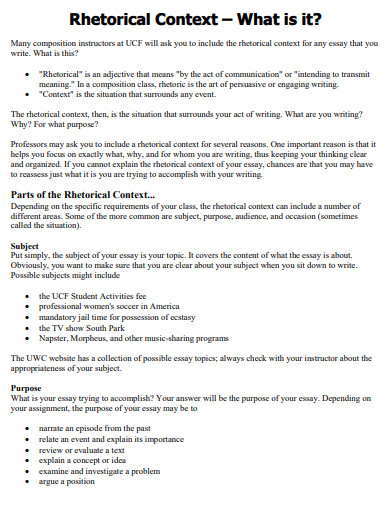
uwc.cah.ucf.edu
2. Rhetorical Analyses Context
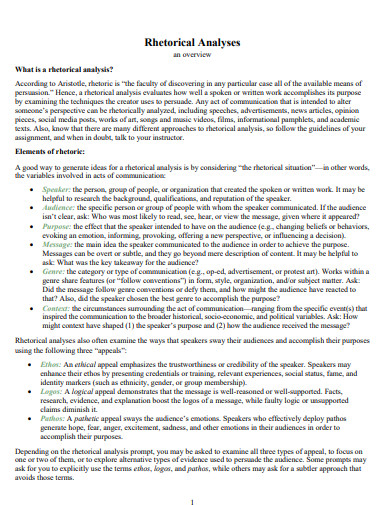
jmu.edu
3. Assigned Rhetorical Context
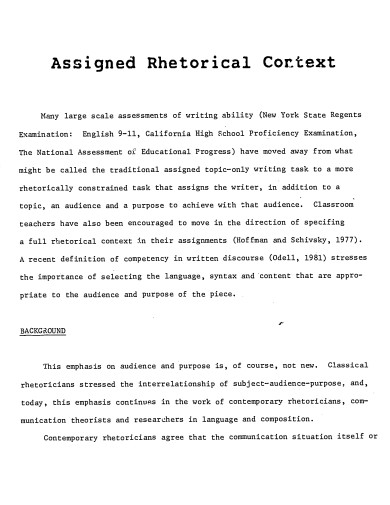
files.eric.ed.gov
4. Writing Rhetorical Context
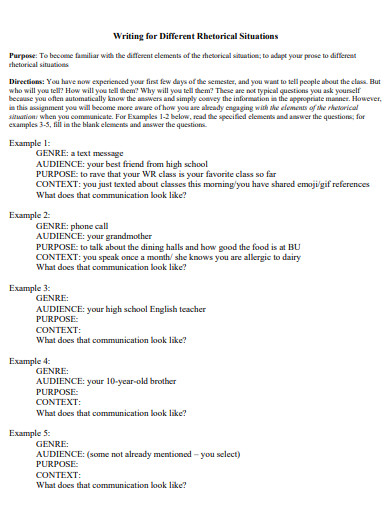
bu.edu
5. The Rhetorical Context
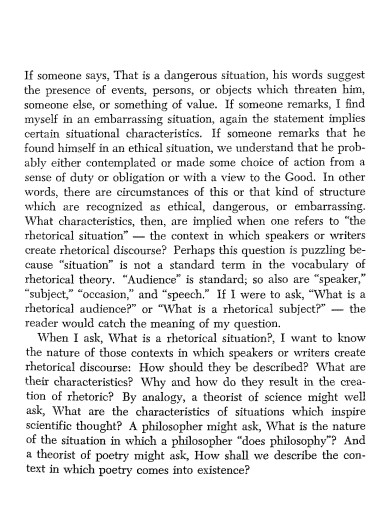
arts.uwaterloo.ca
6. Brief Rhetorical Context
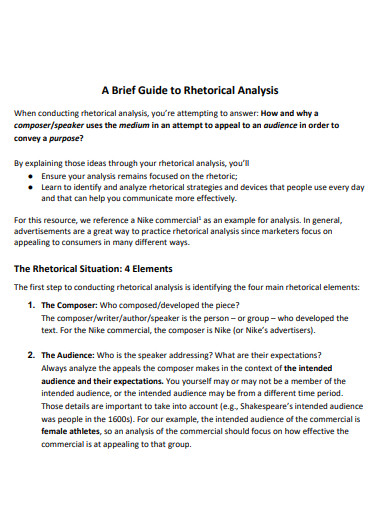
scu.edu
7. Distinguish Rhetorical Context
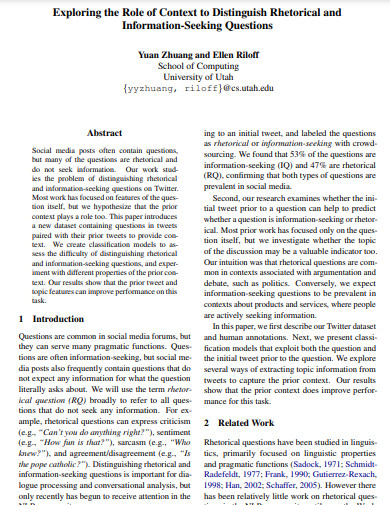
aclanthology.org
8. Argumentation in Rhetorical Context
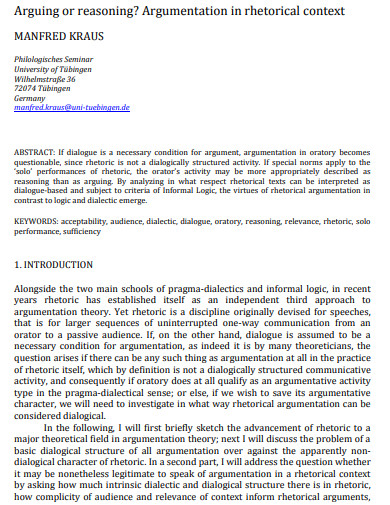
scholar.uwindsor.ca
9. Introduction to Rhetorical Context
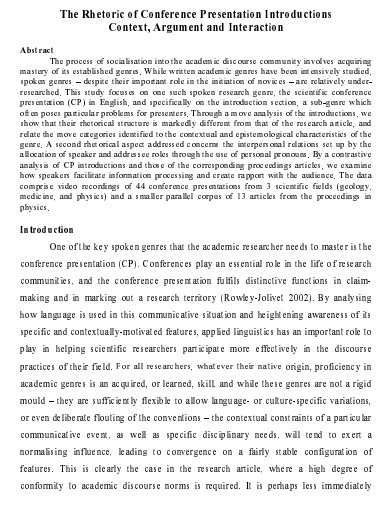
shs.hal.science
10. Rhetorical Context Conclusion

users.cs.utah.edu
11. Literary And Rhetorical Context
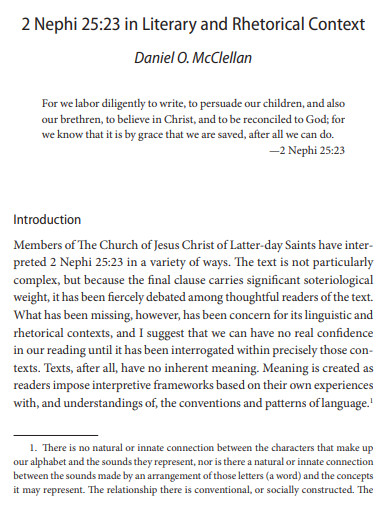
hcommons.org
12. Rhetorical Context Planning
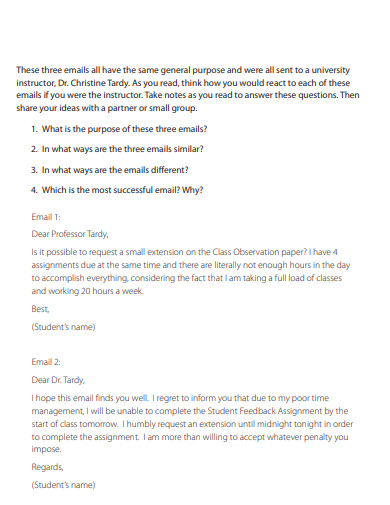
press.umich.edu
13. Rhetorical Historical Context
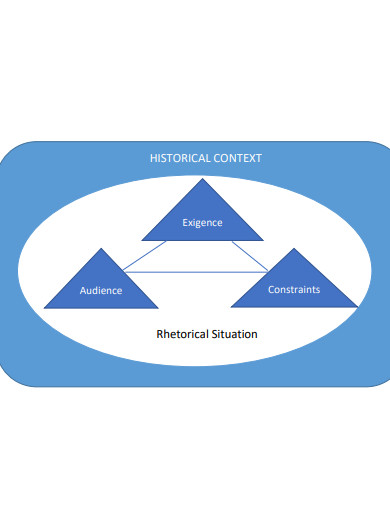
open.lib.umn.edu
14. Teaching Rhetorical Context
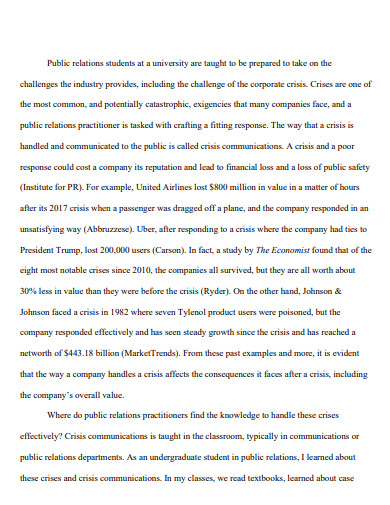
scholarsarchive.byu.edu
15. Rhetorical Competence Context
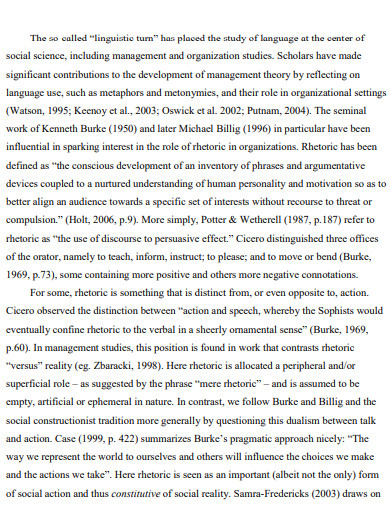
eprints.ncl.ac.uk
16. Rhetorical Context Awareness
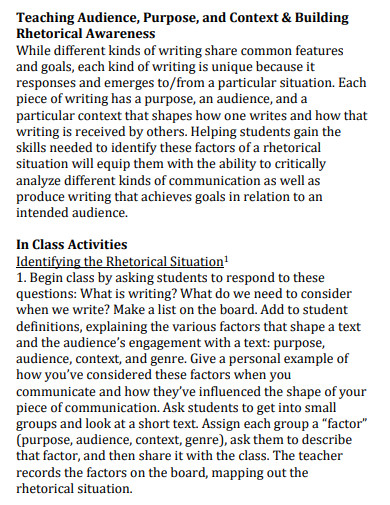
cortland.edu
17. Rhetorical Context Sources
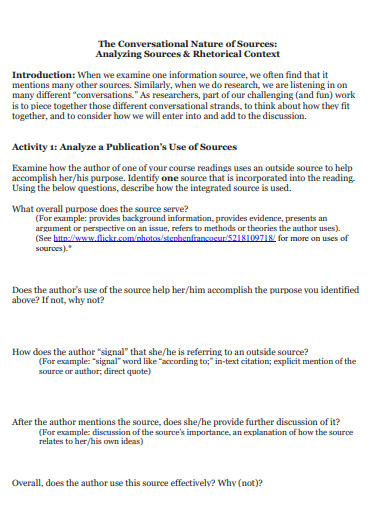
libraries.indiana.edu
18. Rhetorical Context Thesis

scholarworks.lib.csusb.edu
19. Rhetorical Summary Context
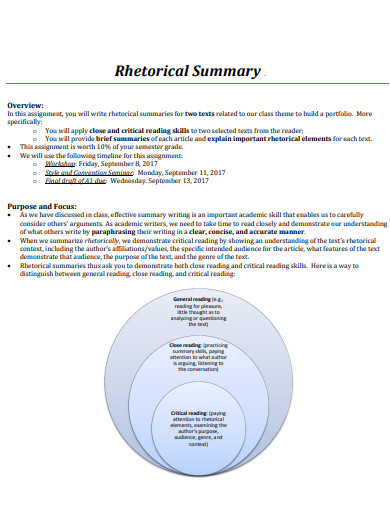
libarts.colostate.edu
20. Rhetorical Context Example
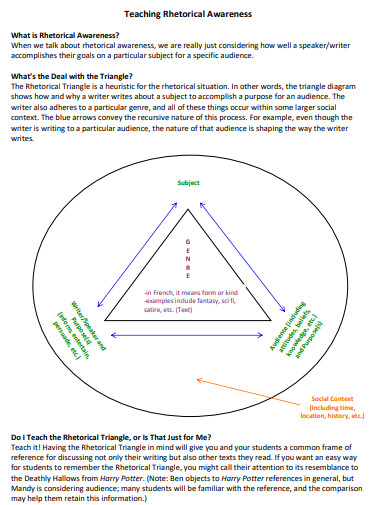
smcm.edu
21. Business Communication Rhetorical Context Example
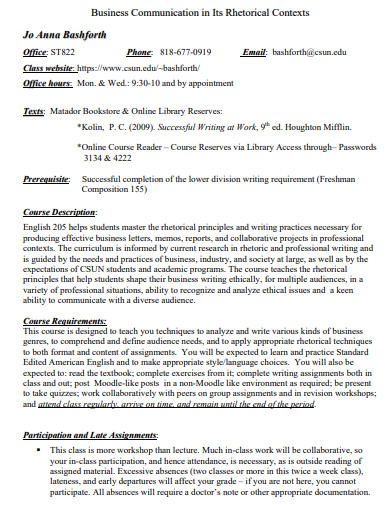
csun.edu
22. Rhetorical Political Context Example
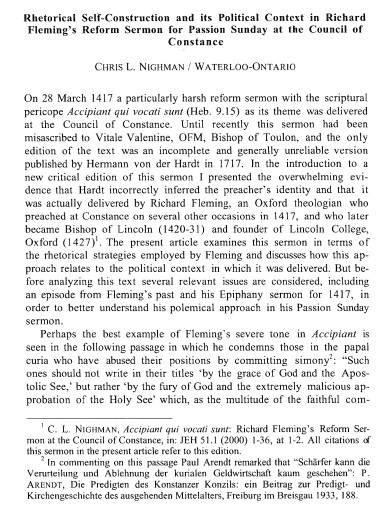
scholars.wlu.ca
23. Sample Rhetorical Context Example
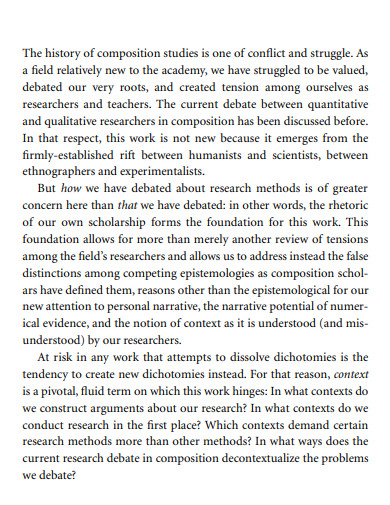
digitalcommons.usu.edu
24. Rhetorical Context Analysis
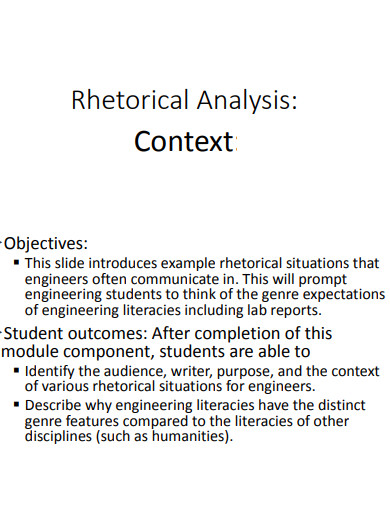
labs.wsu.edu
25. Rhetorical Context Template
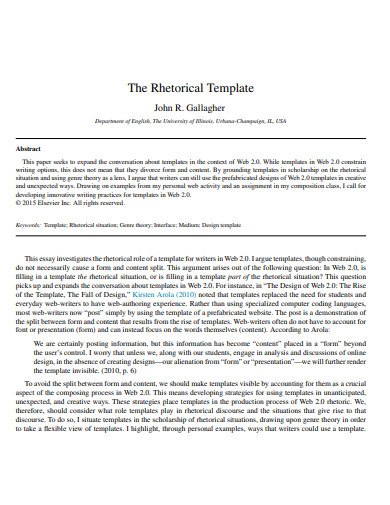
publish.illinois.edu
26. Disciplinary Rhetorical Context Example
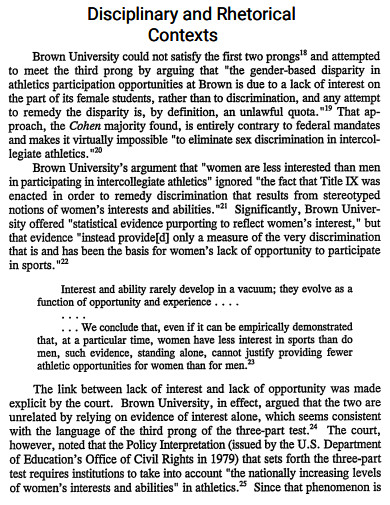
scholarlycommons.law.wlu.edu
27. Simple Rhetorical Context Example
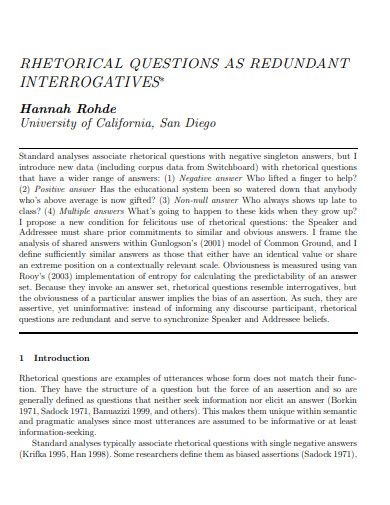
escholarship.org
28. General Rhetorical Context Example
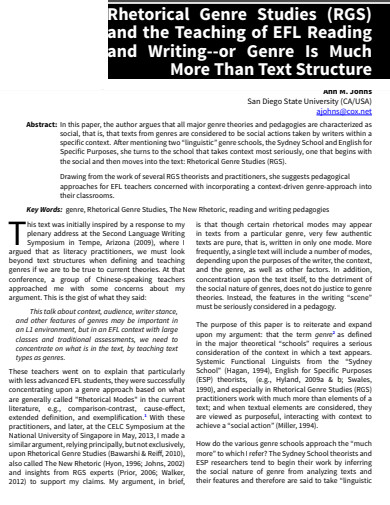
nus.edu.sg
29. Rhetorical Context Studies Example

methods-sagepub-com-christuniversity.knimbus.com
30. Professional Rhetorical Context Example
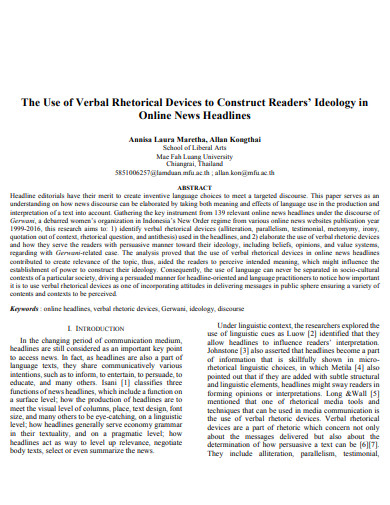
core.ac.uk
31. Rhetorical Processes Context Example
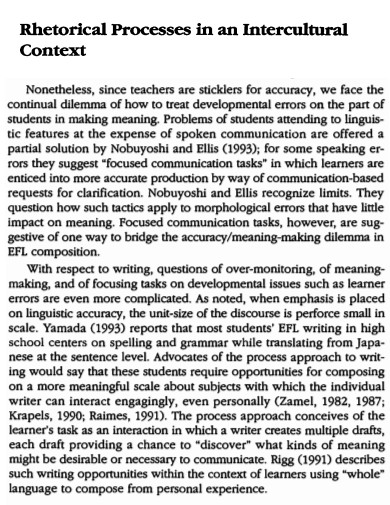
jalt-publications.org
Importance of Rhetorical Context
Rhetorical context is a crucial aspect of effective communication. It involves understanding the various elements that influence how a message is crafted and received. Here are key reasons why rhetorical context is important:
1. Enhances Clarity and Understanding
- Audience Awareness: Knowing the audience helps tailor the message to their knowledge level, interests, and values, making it more comprehensible and relevant.
- Purpose Alignment: Clarifying the purpose ensures that the content meets its intended goal, whether it’s to inform, persuade, entertain, or express.
2. Improves Persuasion
- Ethos, Pathos, and Logos: Understanding the rhetorical context allows for a balanced use of ethical appeal (ethos), emotional appeal (pathos), and logical appeal (logos) to persuade the audience effectively.
- Credibility: Recognizing the author’s background and biases can help in establishing credibility and trust with the audience.
3. Contextual Relevance
- Historical and Cultural Context: Awareness of the historical and cultural backdrop ensures that the message is appropriate and resonates with the audience’s current context and experiences.
- Situational Appropriateness: Considering the specific situation or event prompting the communication ensures that the message is timely and relevant.
4. Effective Communication Strategy
- Genre and Medium: Understanding the conventions of the genre and the most effective medium for the message enhances the likelihood of successful communication.
- Tone and Style: Adapting the tone and style to suit the audience and purpose makes the communication more engaging and impactful.
5. Prevents Miscommunication
- Avoids Misinterpretation: By considering the rhetorical context, communicators can anticipate potential misunderstandings and address them proactively.
- Clarifies Intentions: Clearly defining the purpose and stance helps in conveying the intended message without ambiguity.
6. Strengthens Critical Thinking and Analysis
- Text Analysis: Understanding rhetorical context enables a deeper analysis of texts, helping to uncover underlying meanings, biases, and strategies.
- Critical Evaluation: It promotes critical evaluation of the effectiveness of communication strategies and their impact on the audience.
7. Facilitates Adaptation and Flexibility
- Audience Feedback: Considering the rhetorical context allows for better adaptation based on audience feedback and changing circumstances.
- Responsive Communication: It helps in adjusting the message and approach in real-time to better meet the needs of the audience.
Synonyms & Antonyms of Rhetorical Context
Synonyms
Understanding synonyms for “rhetorical context” can help in grasping the concept from different angles. Here are some commonly used synonyms:
- Communicative Environment
- Situational Context
- Discourse Context
- Textual Setting
- Interactional Setting
- Communicative Circumstances
- Rhetorical Situation
- Textual Environment
- Communicative Context
- Discourse Framework
Antonyms
While there are no direct antonyms for “rhetorical context,” the following terms represent concepts that contrast with or are outside the scope of rhetorical context:
- Isolation: Lack of context or surrounding circumstances.
- Irrelevance: Lack of connection to the situation or topic.
- Detachment: Disconnection from the communicative environment.
- Disregard: Ignoring the context or surrounding factors.
- Acontextuality: Absence of context.
- Miscommunication: Failure to consider the rhetorical context leading to misunderstanding.
- Ambiguity: Unclear or undefined context.
- Obscurity: Lack of clarity or detail in context.
- Incongruity: Mismatch or inconsistency with the context.
- Disconnection: Lack of connection or relationship to the context.
How do you find the Rhetorical Context
Finding the rhetorical context of a piece of writing or speech involves examining various elements that influence how the message is created and received. Here is a step-by-step guide to identifying the rhetorical context:
1. Identify the Author (Writer/Speaker)
- Background and Credentials: Research the author’s education, experience, and expertise.
- Ethos: Determine the author’s credibility and how they are perceived by the audience.
- Intentions and Biases: Consider the author’s motives, perspectives, and potential biases.
2. Analyze the Audience
- Demographics: Identify the age, gender, education level, and cultural background of the intended audience.
- Prior Knowledge: Assess what the audience already knows about the topic.
- Values and Beliefs: Understand the audience’s principles and ideologies.
- Expectations: Determine what the audience anticipates from the message.
3. Determine the Purpose
- Inform: Is the purpose to provide information or explanations?
- Persuade: Is the aim to convince the audience to adopt a particular viewpoint or take action?
- Entertain: Is the goal to engage the audience through storytelling or humor?
- Express: Is the purpose to share personal thoughts, feelings, or reflections?
4. Examine the Context
- Historical Context: Research the time period and significant events when the text was created.
- Cultural Context: Consider the societal norms, values, and traditions influencing the text.
- Situational Context: Identify the specific situation or event prompting the creation of the text.
5. Identify the Genre
- Narrative: Stories, novels, biographies.
- Expository: Essays, articles, reports.
- Persuasive: Speeches, advertisements, opinion pieces.
- Descriptive: Poetry, descriptive essays.
6. Consider the Medium
- Written: Books, articles, emails.
- Oral: Speeches, lectures, conversations.
- Digital: Social media, blogs, videos.
7. Analyze the Tone
- Formal: Professional and serious.
- Informal: Casual and conversational.
- Humorous: Light-hearted and amusing.
- Sarcastic: Mocking or ironic.
8. Understand the Stance
- Perspective: The specific angle from which the author approaches the subject.
- Bias: Any partiality or predisposition that affects the author’s viewpoint.
9. Identify the Message
- Thesis: The primary argument or claim.
- Supporting Details: Evidence, examples, and explanations that support the thesis.
How to Write in a Rhetorical Context
Now that we grasp the essence of rhetorical context, let’s explore how to harness its power to become effective communicators. Below is a step-by-step guide that will lead you through the process of writing within a rhetorical context, ensuring your words strike chords and achieve their intended impact.
Step 1: Identify Your Purpose and Audience
The cornerstone of effective communication within a rhetorical context is understanding your purpose and audience. Are you persuading, informing, entertaining, or a combination of these? Define your goals clearly. Equally vital is knowing your audience—what are their interests, values, and expectations? Tailoring your message to resonate with them is crucial.
Step 2: Choose Your Tone and Theme
Once your purpose and audience are defined, select an appropriate tone and theme. Tone sets the emotional tenor of your message—is it formal, informal, enthusiastic, or authoritative? Theme encapsulates the core idea you wish to convey. These choices will guide your language and overall approach.
Step 3: Employ Literary Devices
Injecting literary devices into your communication can elevate its impact. Metaphors, alliteration, and other techniques add layers of meaning and engage the audience’s imagination. A well-placed metaphor can elucidate complex concepts, while alliteration can make phrases memorable and rhythmic.
Step 4: Consider Cause and Effect
Understanding cause-and-effect relationships is pivotal when writing within a rhetorical context. How will your words impact your audience? Anticipating reactions and tailoring your message accordingly demonstrates a keen awareness of the rhetorical landscape.
What is rhetorical context?
Rhetorical context refers to the circumstances surrounding a text, including the author, audience, purpose, context, genre, medium, tone, stance, and message.
Why is rhetorical context important?
It helps understand and analyze communication effectively by providing insight into how and why a message is crafted and received.
How do you identify the author in rhetorical context?
Research the author’s background, expertise, and potential biases to understand their credibility and intentions.
What role does the audience play in rhetorical context?
The audience influences how the message is tailored, considering their demographics, prior knowledge, values, and expectations.
How do you determine the purpose of a text?
Identify the author’s primary goal: to inform, persuade, entertain, or express thoughts and feelings.
What is meant by the context of a text?
Context includes historical, cultural, and situational factors that affect the creation and reception of the message.
How does genre affect rhetorical context?
Genre dictates the structure, style, and conventions of the text, influencing how the message is presented.
Why is the medium important in rhetorical context?
The medium (written, oral, digital) affects how the message is delivered and perceived by the audience.
What is the significance of tone in rhetorical context?
Tone reflects the author’s attitude and sets the mood, impacting how the audience perceives the message.
How do you analyze the stance in rhetorical context?
Examine the author’s position, perspective, and any biases that influence their viewpoint on the topic.



